
In the pursuit of transforming Nigeria and our African nations into economic powerhouses, leaders in politics and education must adopt proven templates to uplift the continent and its youth. Africa, boasting the world’s youngest population, faces an opportunity to harness educational efficiency for economic empowerment. The story of Professor Jelili Adebisi Omotola, a former Vice-Chancellor of the University of Lagos (UNILAG), exemplifies the potential impact of such a developmental framework.
The vision of educational efficiency for economic empowerment is the story of a past Vice-Chancellor of the University of Lagos, Professor Jelili Adebisi Omotola. He is considered as one of the law professionals that contributed significantly to property law and the Land Use Act in Nigeria. But little did many know that he also contributed by educationally and economically empowering many UNILAG community members, including staff and students, to own their own lands and properties in life, directly or indirectly through his visions of OMOTONOMICS.
I am a witness to the OMOTONOMICS revolution; Prof. Jelili Adebisi Omotola was a bold leader! Omo T, as we called him back then, took bold steps in UNILAG and achieved immense results
During Prof. Omotola’s tenure (1995-2000) as the Vice-Chancellor of the University of Lagos, UNILAG experienced substantial growth, leading to educational and economic prosperity. This OMOTONOMICS revolution, as we fondly called it, resulted in remarkable achievements:
- Independence: UNILAG successfully navigated ASUU strikes, generating Internal Generated Revenue (IGR) to sustain university operations.
- Consumption to Production: From importing water in tankers and buckets to the school campus, UNILAG began selling water to the rest of Lagos, establishing the UNILAG Water and UNILAG Pure Water brands.
- Publish or Perish: Lecturers shifted from selling handouts to publishing textbooks, even exporting them to other universities across Nigeria.
- From Import to Export: UNILAG, initially facing bread scarcity, began baking and exporting UNILAG Bread to communities in Lagos State, even as far as Ogun and Oyo states.
- Self-Actualization: Many Lecturers transitioned from driving jalopy and basic cars to owning Mercedes Benz vehicles.
- Poverty to Prosperity: Lecturers who had no accommodation on the university campus and were renting apartments in the university neighborhoods became Landlords as they built houses in the new UNILAG Estate.
- Self-Sufficiency: Despite minimal government funding, UNILAG built hostels, sports centers, and more through Internally Generated Revenue.
- No Time to Waste Time: Undergraduates completed 4-year programs in 3.5 years. This is a record compared to many other universities where same 4-year program was completed in as much as 7 to 8 years.
Growth and Development: A massive number of students, with waiting lists, applied for Work-Study programs and earned income to support their education and some also sent money home to support their families and parents.
Strong Homeland Security: Several banks commenced very busy commercial operations on the University campus, because of stable electricity, constant water supply, and many shopping centers and the school had more than enough money to battle insecurity, robbery, and fought cultism to a standstill.

Prof. Omotola’s Educational Efficiency for Economic Empowerment vision is an idea that the effectiveness and productivity of an educational system can contribute significantly to the economic empowerment of individuals and communities.
It is important for our current educational leaders to see the very obvious key components of this OMOTONOMICS concept through:
- Educational Efficiency through Quality of Education: Educational efficiency can be achieved by providing high-quality education that equips individuals with the necessary skills, knowledge, and competencies. This involves effective teaching methods, relevant curriculum, and accessible resources. Through a huge consideration for Cost-Effectiveness too, it also involves utilizing resources efficiently, minimizing wastage, and achieving educational goals at a reasonable cost. Sustained efficient use of resources will ensure that maximum number of people can benefit from the education system.
- Economic Empowerment through Income Generation: Economic empowerment is globally is a process of providing individuals and communities with the resources, knowledge, and skills to improve their economic well-being. This often involves creating opportunities for income generation and economic self-sufficiency. Also, this results in poverty alleviation where Education can empower Africans to break the cycle of poverty by opening up employment opportunities, enhancing entrepreneurial skills, and improving overall economic conditions.
- Connection Between Education, Economic Empowerment through Skill Development: A well-designed and efficient education system can impart skills that are in demand in the local African job markets, across the different countries. This, in turn, increases the employability of individuals and contributes to economic empowerment through Innovation and Productivity whereby Education fosters innovation and creativity, leading to increased productivity and economic growth. A workforce with a strong educational foundation is better equipped to contribute to technological advancements and economic development. Also, it brings about Social Mobility by breaking down barriers and provide equal opportunities for people to improve their socio-economic status.
In conclusion, Education Efficiency for Economic Empowerment in Africa emphasizes the importance of designing and implementing education systems that are not only efficient in terms of resource utilization but also effective in empowering Africans economically. A well-functioning education system, as advocated by Prof. Jelili Adebisi Omotola, contributes to the development of a skilled and knowledgeable workforce, which, in turn, can lead to economic growth and improved living standards for individuals and communities.
Indeed, if many universities across Nigeria and the African continent, government and education leaders, Vice-Chancellors and Staff Unions can look inward and use the OMOTONOMICS template to develop their school campuses and impact their communities, they will become pockets of location for shared educational and economic prosperity that could propel the African youth population to a newfound generational success!






















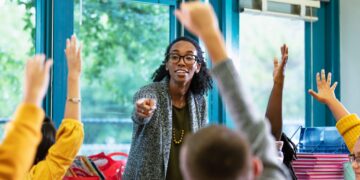
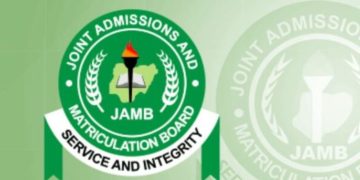



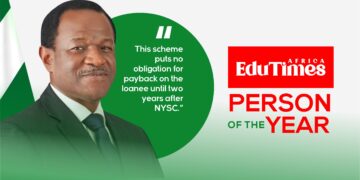









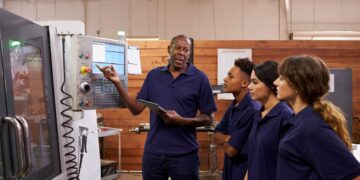



























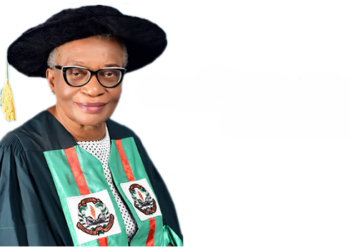
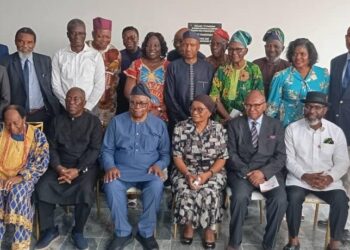

 EduTimes Africa, a product of Education Times Africa, is a magazine publication that aims to lend its support to close the yawning gap in Africa's educational development.
EduTimes Africa, a product of Education Times Africa, is a magazine publication that aims to lend its support to close the yawning gap in Africa's educational development.

